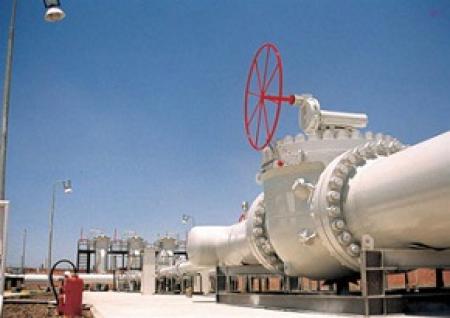Keith Johnson writes: The discovery of a giant natural gas field off the coast of Egypt is great news for that energy-starved nation, but it threatens to upend the grandiose energy dreams of neighbors like Israel and Cyprus.
Eni, an Italian energy firm, announced this week that it had discovered the largest gas field ever found in the Mediterranean, a “supergiant” basin that could hold as much as 30 trillion cubic feet of gas. If those early estimates are correct — and optimistic appraisals often give way to more sober analyses — it would be even larger than Leviathan, the giant offshore gas field that has fueled Israeli dreams of becoming a regional energy exporter. The new field, known as Zohr, will take at least three years to come online — and potentially longer if the country’s security situation continues to worsen — but it could then meet Egypt’s energy needs for decades and provide both an economic and political boost to President Abdel Fattah al-Sisi.
Fresh supplies of natural gas could help Sisi keep power plants and factories running, no small matter in a place where electricity blackouts sparked the political turmoil that helped bring down two of Egypt’s former leaders.
Eni’s new discovery, coupled with an announcement earlier this year by BP that it will invest $12 billion to develop existing Egyptian gas fields, amounts to a corporate endorsement of the economic reforms that Sisi has steadily pushed through. That includes paying off debt to foreign energy firms and starting to overhaul the domestic energy market by, for example, rolling back politically popular but ruinously expensive fuel subsidies.
If the gas find is potentially great news for Egypt, it could represent a blow to Egypt’s neighbors. Israel still has plans to turn its own massive offshore gas resources into a source of energy for the rest of the region. Israel and Egypt signed a deal last year under which Israel would export gas from the huge Leviathan field to Egypt; Israel inked similar deals to export gas to Jordan.
Cyprus, which had grand plans of its own to tap offshore gas fields and export fuel to Egypt and others, is putting a brave face on the news. Cypriot leaders, burned by disappointing drilling results in their waters so far, figure the massive Egyptian discovery augers well for the island’s own energy future because the Zohr prospect is just a few miles away from Cypriot waters and likely shares the same geology.
And the Zohr discovery won’t slam the door shut on Egyptian imports right away, leaving a few years of juicy prospects for other suppliers. Though Eni and Egyptian officials pledged to fast-track development of the field, it will take years to finance and build the infrastructure needed to fully tap it. Even that timeline could grow longer if Egypt’s security situation worsens, which could put a damper on foreign investment.
One final ripple from the Egyptian discovery could be a revival of talk about eastern Mediterranean countries supplying Turkey with natural gas. Both Cyprus and Israel looked at Turkey as a potential market, but politics as much as economics seemed to doom any deals.

